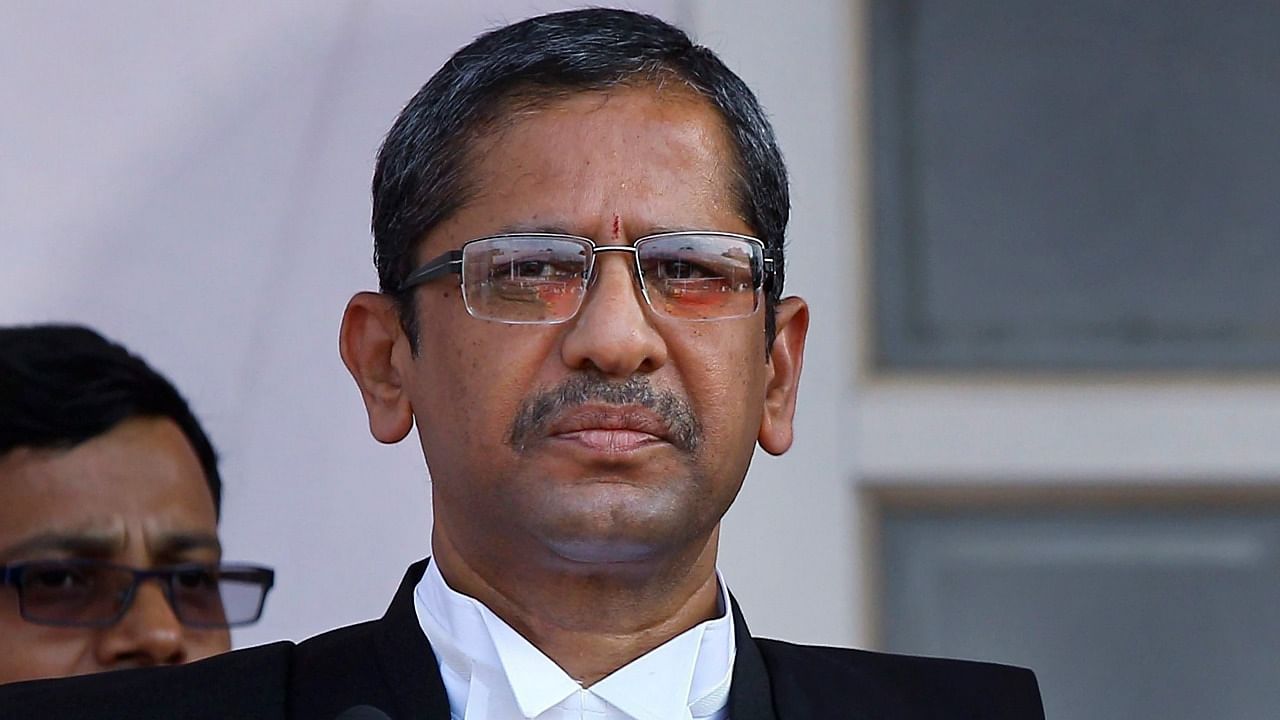
Justice N V Ramana, the senior most judge of the Supreme Court, would on Saturday take over as the 48th Chief Justice of India.
President Ram Nath Kovind would administer the oath of office to Ramana in a ceremony at 11 am on April 24, on superannuation of CJI S A Bobde.
The Law Ministry earlier this month issued a notification on Justice Ramana's appointment.
On March 24, Chief Justice of India S A Bobde had recommended the name of Justice Ramana as his successor.
Justice Ramana, who hails from Andhra Pradesh, was elevated to the Supreme Court on February 17, 2014.
He will retire on August 26, 2022 after a term of over 16 months.
With his appointment, Justice Ramana faces several challenges, including filling up of 411 vacancies of judges in the High Courts and six in the Supreme Court. Twenty five High Courts had sanctioned a strength of 1,080 judges. The top court at present has 28 judges including the CJI.
Justice Ramana was appointed as judge of the Andhra Pradesh High Court in 2000. He has been the acting Chief Justice of Andhra Pradesh High Court. He has also been the Chief Justice of the Delhi High Court.
In October 2020, a huge controversy had erupted as the AP CM, wrote to the CJI alleging that the state High Court was being used to "destabilise and topple his democratically elected government". The letter accused Justice Ramana of trying to control the High Court and influence cases affecting the state. The matter was however closed after in-house inquiry found no substance in the allegations.
In the top court, Justice Ramana has presided over a five-judge bench which heard petitions related to revoking of special status of Jammu and Kashmir under Article 370 of the Constitution. He also dealt with the matter related to the ban of 4G in Jammu and Kashmir and declared that access to internet was a fundamental right.
He also headed a three-judge bench which dealt with legal questions arising out of the resignation of 17 rebel MLAs of Congress and JDS of Karnataka. Justice Ramana also led a bench, which ordered expediting trial in pending cases against former and sitting MPs and MLAs.
